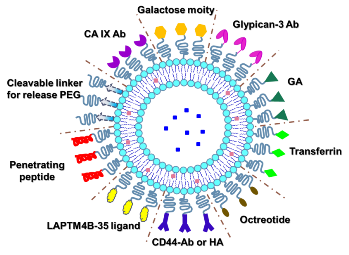
Hong Qi Zhang
Hong Kong Baptist University, China
Title: Drug delivery system targeting advanced hepatocellular carcinoma
Biography
Biography: Hong Qi Zhang
Abstract

Hepatocellular carcinoma (HCC) is notoriously difficult to treat due to its usually late detection and drug resistance to chemotherapy, making it one of the cancers with top mortality rate. High dose of chemotherapeutic agents are often associated with intolerable side-effects. Targeted drug delivery systems (DDS) that can deliver therapeutic drugs selectively into cancer cells have shown a great potential in modern oncology, and numerous preclinical studies of DDS have been published in recent years. Yet targeted DDS for HCC has to be made for practical clinical use to overcome the obstacles of conventional chemotherapy. A good targeted DDS design should take cancer-specific properties into consideration for efficient drug delivery. The following biological and physicochemical properties of HCC are of use in the design of effective targeted DDS: (a) the blood supply of advanced HCC is mainly from the arterial systems, (b) the microvessel density is inversely correlated to HCC tumor size, (c) the tumor microenvironment of HCC is hypoxia and acidotic, with increased interstitial fluid pressure, and (d) there is an overexpression of proteins or receptors on HCC surface instead of normal hepatocytes such as Glycan-3, asialoglycoprotein receptor, the transferrin receptor, carbonic anhydrase IX, and the somatostatin receptor. A good targeted DDSs should make a good use of these features of HCC for site-specific or targeted-oriented delivery in targeting either HCC vasculature and/or cellular components. Our recent experiments designed based on these considerations have indeed shown some promising results. These delivery systems will provide a meaningful platform for further development of HCC treatments.

